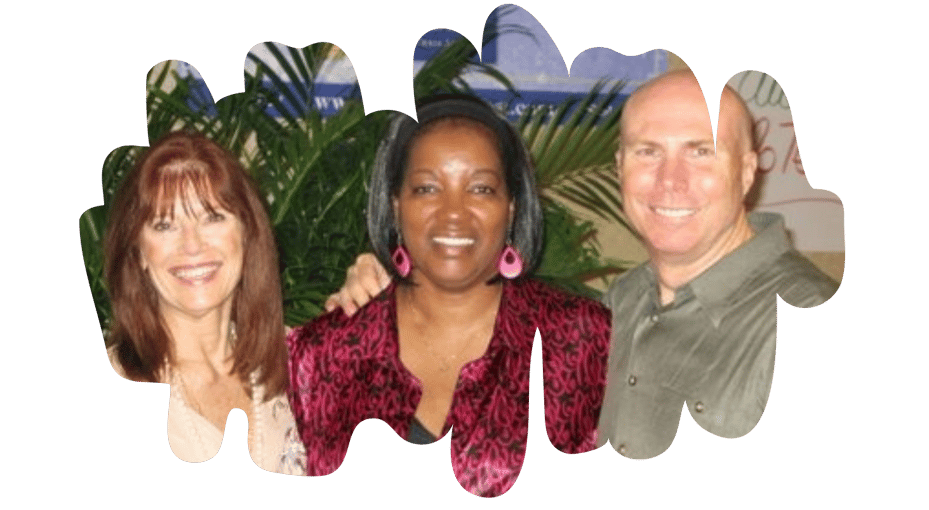7 Life Changing Principles
by Tim Ferriss
1. It doesn’t matter how many people don’t get it. What matters is how many people do. _______________________________________________
“It’s critical in social media, as in life, to have a clear objective and not to lose sight of that,”. Ferriss argues that if your objective is to do the greatest good for the greatest number of people or to change the world in some small way (be it through a product or service), you only need to pick your first 1,000 fans — and carefully. “As long as you’re accomplishing your objectives, that 1,000 will lead to a cascading effect,” Ferriss explains. “The 10 million that don’t get it don’t matter.”
2. 10% of people will find a way to take anything personally. Expect it. ______________________________________________
“People are least productive in reactive mode,” Ferriss states, before explaining that if you are expecting resistance and attackers, you can choose your response in advance, as opposed to reacting inappropriately. This, will only multiply the problem. “Online I see people committing ‘social media suicide’ all the time by one of two ways. Firstly by responding to all criticism, meaning you’re never going to find time to complete important milestones of your own, and by responding to things that don’t warrant a response.” This, says Ferriss, lends more credibility by driving traffic.
3. “Trying to get everyone to like you is a sign of mediocrity.” (Colin Powell) _______________________________________________
“If you treat everyone the same and respond to everyone by apologizing or agreeing, you’re not going to be recognizing the best performers, and you’re not going to be improving the worst performers,” Ferriss says. “That guarantees you’ll get more behavior you don’t want and less you do.” That doesn’t mean never respond, but be “tactical and strategic” when you do.
4. “If you are really effective at what you do, 95% of the things said about you will be negative.” (Scott Boras) ______________________________________________
“This principle goes hand-in-hand with number two,” Ferriss says. “I actually keep this quote in my wallet because it is a reminder that the best people in almost any field are almost always the people who get the most criticism.” The bigger your impact, explains Ferriss (whose book is a New York Times, WSJ and BusinessWeek bestseller), and the larger the ambition and scale of your project, the more negativity you’ll encounter. Ferriss jokes he has haters “in about 35 languages.”
“Another way to phrase this is through a more recent quote from Elbert Hubbard,”. “‘To avoid criticism, do nothing, say nothing, and be nothing.” Ferriss, who holds a Guinness World Record for the most consecutive tango spins, says he has learned to enjoy criticism over the years. Ferriss, using Roman philosophy to expand on his point, says: “Cato, who Seneca believed to be the perfect stoic, practiced this by wearing darker robes than was customary and by wearing no tunic. He expected to be ridiculed and he was, he did this to train himself to only be ashamed of those things that are truly worth being ashamed of. To do anything remotely interesting you need to train yourself to be effective at dealing with, responding to, even enjoying criticism… In fact, I would take the quote a step further and encourage people to actively pursue being thought foolish and stupid.”
5. “If you want to improve, be content to be thought foolish and stupid.” (Epictetus) _______________________________________________
“The best way to counter-attack a hater is to make it blatantly obvious that their attack has had no impact on you,” Ferriss advises. “That, and [show] how much fun you’re having!” Ferriss goes on to say that the best revenge is letting haters continue to live with their own resentment and anger, which most of the time has nothing to do with you in particular. “If a vessel contains acid and you pour some on an object, it’s still the vessel that sustains the most damage,” Ferriss says. “Don’t get angry, don’t get even — focus on living well and that will eat at them more than anything you can do.”
6. “Living well is the best revenge.” (George Herbert) _______________________________________________
7. Keep calm and carry on. _______________________________________________
The slogan “Keep Calm and Carry On” was originally produced by the British government during the Second World War as a propaganda message to comfort people in the face of Nazi invasion. Ferriss takes the message and applies it to today’s world. “Focus on impact, not approval. If you believe you can change the world, which I hope you do, do what you believe is right and expect resistance and expect attackers,” Ferriss concludes. “Keep calm and carry on!”
THE CANOE THEORY
A positive attitude, a shared vision, and a commitment to team building upon the dual concepts of individual excellence and collective achievement.
The story behind the theory.
Three couples went on a trip in Hawaii. They were enjoying themselves and having a great time. At the end of their trip, they had decided to do some canoeing on the ocean. The lead instructor was very serious and told them for 30 minutes it's all about paddling: how to put their paddles in the water, the components of the canoe, the directions in the native language, how they needed to conduct themselves in the canoe, what seat they needed to occupy to benefit the movement of the canoe, etc. It was becoming apparent that this wasn’t just a canoe ride to the couples. It was a cultural experience based on history and deep respect for the Hawaiian way. The couples were at first impatient, they were telling themselves “how hard can paddling be, I just want to get out there and have a few laughs.”When the instructor said ok, let’s go in the water, they were feeling prepared, wanting to please the instructor and do their part as committed team members, giving it their all. The instructor began to increase the intensity of the task and the team was amazing. No misses, pure unison: just focused and commitment. After they stopped, they were exhausted, wet, hot and proud of what they did as a team. Their leader was committed to their growth, and it wasn’t just about paddling a canoe, it was about achievement, it's about life, and the power of a team.
What's important?
What really matters?
According to my friends Janet and Chris Attwood what matters is your passion.
Learn how to create the life of your dreams by discovering your passions and living according to what matters most to you. You will be able to identify your top five passions by taking the test and then, learn exactly how to align your life. This tool will help you understand the key success elements for you to live a happy, fulfilled life. Clarity is Key! "When you are clear, what you want will show up but only to the extent that you are clear."All of us were put on this earth for a reason. Our life’s purpose is to discover our gifts and talents, and then to give it. Unfortunately, too many people complete their entire life without having fully identified their unique gift and never being able to fully give it. What do you love to do? What kind of environment do you love to be in? What kind of people do you love to be around? What excites you, what turns you on, what gets you charged up? The answers to these questions all provide clues to your purpose.
LEARN TO LIVE WITH PASSION!
Cassandra Finley, Certified Passion Test Facilitator & Certified Life Coach


What's Important?
What Really Matters?
READY or NOT, someday it will all come to an end. There will be no more sunrise, no minutes, no hours or days. All the things you collected, whether treasured or forgotten, will pass to someone else. Your wealth, fame and temporal power will shrivel to irrelevance. It will not matter what you owned or what you were owed. Your grudges, resentments, frustrations and jealousies will finally disappear. So too, your hopes, ambitions, plans and to-do lists will expire. The wins and losses that once seemed so important will fade away. It won't matter where you came from or what side of the tracks you lived on at the end. It won't matter whether you were beautiful or brilliant. Even your gender and skin color will be irrelevant.
So WHAT WILL MATTER? How will the value of your days be measured? What will matter is not what you bought but what you built, not what you got but what you gave. What will matter is not your success but your significance. What will matter is not what you learned but what you taught. What will matter is every act of integrity, compassion, courage, or sacrifice that enriched, empowered or encouraged others to emulate your example.
What will matter is not your competence but your character. What will matter is not how many people you knew, but how many will feel a lasting loss when you're gone. What will matter is not your memories but the memories of those who loved you. What will matter is how long you will be remembered, by whom, and for what.
Living a life that matters doesn't happen by accident. It's not a matter of circumstance but of choice.
CHOOSE TO LIVE A LIFE THAT MATTERS...ON PURPOSE!
by Michael Josephson
The Mindset of A Champion
"When you have the mindset of a champion, you don't make excuses. You don't have pity parties. Instead, you make an honest evaluation of your life, you focus on what you want your destiny to be, and then you make it happen! Making it happen is where the challenge is. It's where the action is. It's where you discover what you're really made of. And it takes GUTS."



